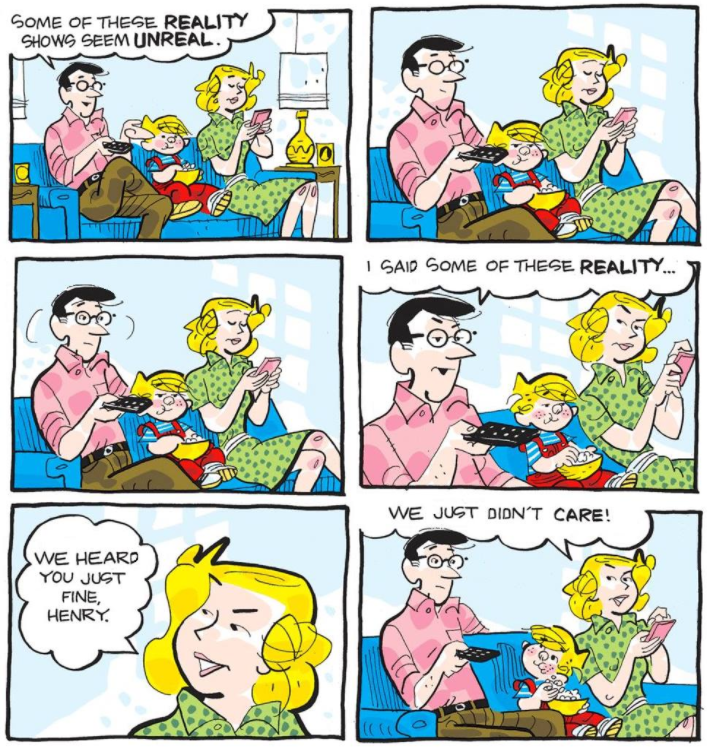 |
| The wacky Monty Python boys early in their career, minus Terry Gilliam. |
 |
| Python's semi-forgotten 1970 debut album. |
Though its origins were in television, Monty Python quickly became a multimedia phenomenon. The British comedy troupe produced numerous films, stage shows, books, and albums between 1969 and 1983. If the 2000 documentary
From Spam To Sperm: Monty Python's Greatest Hits is to be believed, the boys were never too keen on making the records, with only Michael Palin (my vote for Python's all-time MVP) possessing the necessary patience for it.
And yet, despite this utter lack of enthusiasm, Monty Python managed to create a string of inventive and funny LPs, including
Another Monty Python Record (1971),
Monty Python's Previous Record (1972),
Matching Tie And Handkerchief (1973), and
The Album Of The Soundtrack Of The Trailer Of The Film Of Monty Python And The Holy Grail (1975). All keepers. I'll even vouch for Python's little-loved
Contractual Obligation Album (1980). These albums, which generally combine new and repurposed material, can be enjoyed at full length, but 1988's double-disc
The Final Ripoff is a good distillation of their audio-only work. In that aforementioned 2000 documentary, Steve Martin confesses that he originally thought Python was a recording act before he saw their TV show or films.
The group's 1970 debut album, simply titled
Monty Python's Flying Circus, is a decidedly modest affair, released purely as a promotion for the eponymous BBC series. The material on it comes directly from the TV show, with almost nothing prepared especially for the album. The reason it was not included in
The Instant Monty Python CD Collection (1994) or a subsequent series of reissues is that Monty Python does not own this album. The BBC retains the rights to it, nearly half a century later.
The 1989 book
The First 200 Years Of Monty Python by Kim "Howard" Johnson indicates that the 1970 album is simply audio taken from the TV show. So I was initially not very interested in it, but I bought a used copy on vinyl anyway. It turns out that the LP was actually recorded live at the Camden People's Theatre in London. So why does it have a laugh track? Well, the audience was not terribly lively that night, Whoops.
 |
| Ian MacNaughton, madman. |
The now largely forgotten album was produced by Ian MacNaughton (1925-2002), who directed most of the episodes of
Flying Circus on the BBC, as well as Python's debut feature,
And Now For Something Completely Different (1971). He also wrote the surprisingly straight-laced, joke-free liner notes, briefly explaining how the troupe and the show came into existence. Like
And Now..., this album appears to be a collection of "greatest hits," designed mainly to introduce Python to newcomers.
Is the damned thing any good? Surprisingly, yes. The audience may have been sitting on its collective hands, but the Python boys really do their best to sell this familiar material anyway. The troupe members had plenty of stage experience by this point, going back to their days at Oxford and Cambridge, and seem comfortable in front of a crowd. John Cleese, especially, seems energetic and displays great range, playing everything from a shy, hesitant young man ("The Mouse Problem") to a bombastic drill sergeant ("Self-Defense"). Palin, too, is in fine form, belting out "The Lumberjack Song" as if he'd been performing it for years. Keep in mind: The now-famous bit was still new back then.
The track names are not particularly helpful. The sketch widely known as "Crunchy Frog" is here called "Trade Description Act." Cleese's infamous "Albatross" routine is merely "The Cinema." And there are tracks called "Television Interviews," "Interviews," "and "More Television Interviews." The first is about an otherwise unremarkable man (Palin) with three buttocks. The second is about filmmaker Sir Edward Ross (Graham Champan, misidentified here as "Grahame"), who doesn't like being called "Eddie baby" or "pussycat." And the third is about that poor, harried composer Arthur "Two Sheds" Jackson (Terry Jones), whose nickname has overshadowed his music.
In its studio albums, Python would get better at creating comedy that works without a visual component, strictly through dialogue, sound effects, and music. (No wonder the
Contractual Obligation Album was so heavy on songs.) They hadn't really learned how to do that as of this debut album, though. High-concept sketches like "Flying Sheep," "The Visitors," "The North Minehead By-Election," "The Mouse Problem," and "Self-Defense" do lose a bit of impact here when deprived of pictures, and Cleese's explanatory narration in "The Barber" seems like an afterthought. And a supposed "stereo demonstration" by Graham Chapman's Colonel -- one of the few bits prepared especially for this LP -- is spoiled because the album is presented in monaural sound.
And yet, despite these misgivings, the
Monty Python's Flying Circus album has a definite, crude charm to it. If Python was comedy's answer to The Beatles, this was its own
Please Please Me, i.e. a chance to hear a soon-to-be-legendary group at the cusp of its success.













































